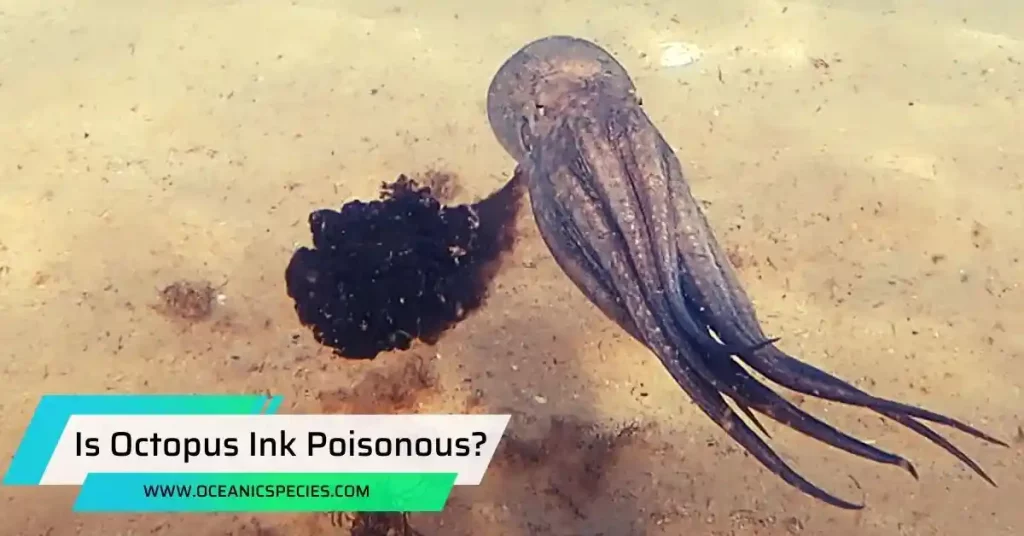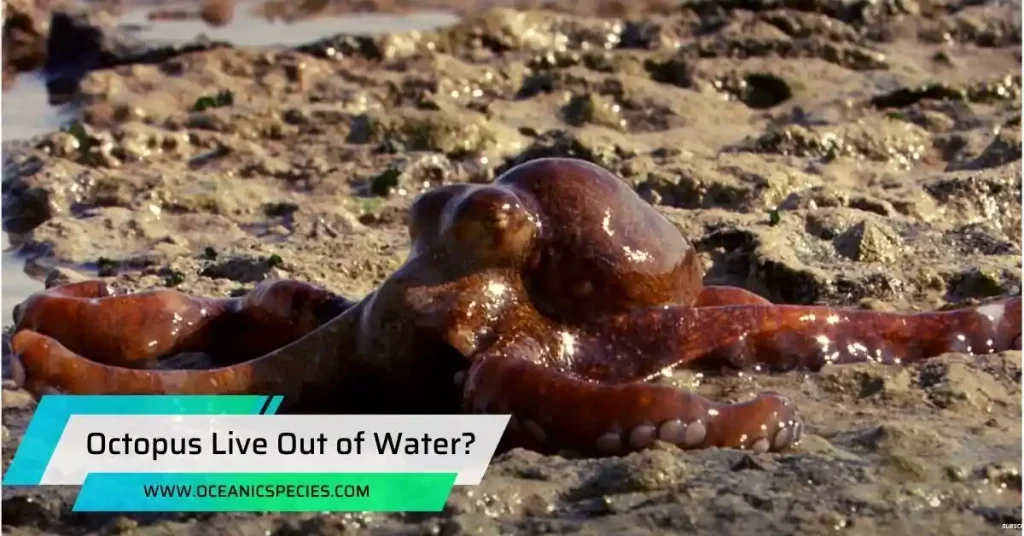No, octopus ink is not poisonous to humans. Octopus and squid use their ink as a defense mechanism to escape from predators by releasing large amounts of ink into the water, creating a dark cloud to obscure their view.
However, consuming food made with squid ink can carry some risks, such as causing an allergic reaction similar to seafood allergy for those with shellfish or squid allergies. It is recommended for individuals with allergies to avoid foods with squid ink.
The Composition Of Octopus Ink
Overview Of Octopus Ink Composition

Octopus ink is a fascinating substance produced by these intelligent creatures as a defensive mechanism. It plays a crucial role in their survival by helping them escape from predators and hide from danger. The ink is released as a cloud in the water, creating a distraction and enabling the octopus to make a quick getaway.
Chemical Components Of Octopus Ink
The composition of octopus ink consists of various chemical components that give it its unique properties. Here are the key elements found in octopus ink:

- Melanin: This dark pigment is responsible for the ink’s black color and opacity. It helps the octopus create a smokescreen effect, making it difficult for predators to see them.
- Mucus: Octopus ink contains mucus, which gives it a gelatinous texture. This mucus helps the ink to adhere together and form the cloud-like structure when released.
- Proteins: Several proteins are present in octopus ink, including enzymes and other biologically active molecules. These proteins may have defensive or signaling functions, but further research is needed to fully understand their role.
- Copper: Octopus ink contains a trace amount of copper, which contributes to its blue coloration. Copper ions help stabilize the melanin molecules and prevent them from breaking down.
Does The Composition Of Octopus Ink Make It Poisonous?
Despite its dark and mysterious nature, octopus ink is not poisonous to humans. In fact, it is commonly used in culinary recipes, adding a unique flavor and visual appeal to the dishes. However, it’s important to note that the ink produced by different species of octopus may vary slightly in composition.
While octopus ink itself is not toxic, it’s worth mentioning that the ink sac, where the ink is stored, is connected to the digestive system. This means that the ink sac may contain residue from the octopus’s diet, including any potentially harmful substances it may have consumed.
Therefore, it is recommended to source octopus ink from reputable suppliers to ensure its safety for culinary purposes.
Octopus ink is a remarkable substance with a complex composition of melanin, mucus, proteins, and trace elements like copper. It serves as a vital defense mechanism for the octopus, allowing them to evade predators. However, when it comes to human consumption, octopus ink is safe and adds an intriguing element to culinary creations.
The Purpose Of Octopus Ink

Dark, opaque cloud, temporarily confusing predators and allowing the octopus or squid to make a quick getaway. While octopus ink is not poisonous to humans, it serves as a clever survival tool in the underwater world.
How Octopuses Use Ink As A Defense Mechanism:
Octopuses have a fascinating defense mechanism where they release ink into the surrounding water as a means to protect themselves from predators. This ink serves multiple purposes, including creating a distraction, impairing vision, and potentially deterring predators from attacking further.
Let’s take a closer look at the different aspects of how octopuses use ink as a defense mechanism:
Overview of octopus ink as a distraction technique:
Octopuses release ink to create a cloud of dark fluid in the water, which acts as a smokescreen, diverting the attention of predators. The sudden appearance of ink can startle predators and provides the octopus with an opportunity to escape.
How octopuses impair vision using ink:
Octopus ink contains a pigment called melanin, which darkens the surrounding water. This darkness makes it difficult for predators to see clearly, allowing the octopus to blend into its environment or flee undetected.
The ink can also affect the predator’s sense of smell, further limiting their ability to track the octopus.
Does the purpose of octopus ink indicate toxicity?
While octopus ink is not inherently toxic to humans, there are variations in its composition across different octopus species. Some species’ ink may contain compounds that are mildly irritating to the eyes or skin, but these effects are generally temporary and harmless.
It’s worth noting that the ink’s main purpose is defense and distraction, rather than causing harm to predators or other creatures.
The Potential Health Risks Of Octopus Ink
Octopus ink is not poisonous to humans and does not pose any potential health risks. In fact, squid and octopus inks are often consumed in recipes without any harmful effects.
Octopus ink is a fascinating substance that serves various functions in the animal kingdom, including camouflage and defense mechanisms. However, when it comes to consuming octopus ink, it’s essential to consider the potential health risks involved. While there is limited research on the toxicity of octopus ink, it’s important to be aware of possible allergic reactions and any adverse effects it may have on humans.
Here’s what you need to know:
Research On The Toxicity Of Octopus Ink:
Limited scientific research has been conducted specifically on the toxicity of octopus ink. The primary focus of research on octopus ink has been on its chemical properties and potential pharmaceutical applications. Although there is no conclusive evidence suggesting the ink is highly toxic, more studies are needed to determine its safety for human consumption.
Possible Allergic Reactions To Octopus Ink:
Individuals with shellfish allergies may be at a higher risk of having allergic reactions to octopus ink. Allergic reactions can vary from mild symptoms, such as itching or hives, to severe reactions like difficulty breathing or anaphylaxis. If you have a known shellfish allergy or are uncertain about any potential allergies, it’s best to consult with a healthcare professional before consuming octopus ink.
Can Consuming Octopus Ink Have Adverse Effects On Humans?

While consuming octopus ink is generally considered safe, it is crucial to ensure that it is sourced from reputable suppliers and prepared properly. Raw or undercooked octopus ink dishes may pose a higher risk of foodborne illnesses.
It is essential to handle and cook octopus ink in accordance with food safety guidelines to minimize any potential adverse effects.
Frequently Asked Questions
What Does Octopus Ink Do?
Octopus ink is used as a defense mechanism. When threatened, octopuses release ink to create a dark cloud, obscuring the predator’s vision and allowing the octopus to escape quickly.
Can You Write With Octopus Ink?
Yes, you can write with octopus ink.
Conclusion
To conclude, octopus ink is not poisonous to humans. In fact, it is quite commonly consumed in culinary dishes and does not pose any harmful effects. However, it’s important to note that squid ink, which is often used interchangeably with octopus ink, may carry some risks.
People with shellfish or squid allergies should avoid consuming foods with squid ink as it can trigger an allergic reaction similar to seafood allergies. Octopus and squid use their ink as a defense mechanism to escape from predators. When threatened, they release large amounts of ink into the water, creating a dark cloud that obscures the predator’s view, allowing them to make a quick escape.
This ink does not harm humans and is perfectly safe to handle. While octopus ink is not poisonous and adds a unique flavor to various dishes, individuals with allergies should exercise caution when consuming foods made with squid ink.





